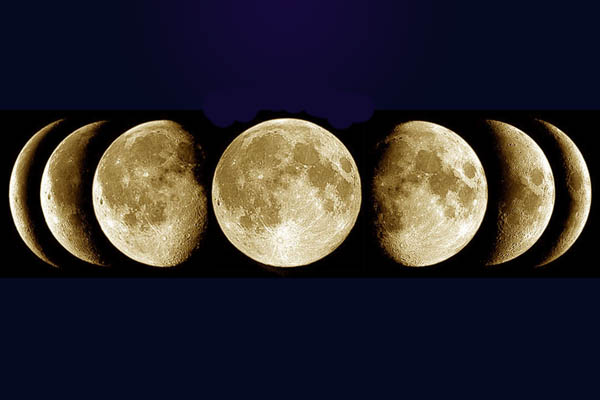Why BP Just Doesn’t Care

BP’s heart isn’t in the clean-up because, says Pat Thomas, to them Deepwater Horizon really is just a drop in the ocean.
So let’s review where we are.
In a series of lack-lustre attempts to stem the flow of oil in the gulf British Petroleum, third largest energy company and the fourth largest company in the world has employed:
- Oil booms to contain the spill. Result: They haven’t really managed to contain much
- Controlled burning. Result: Ooops, burning oil causes serious air pollution
- Chemical dispersants. Result: BP chose to use the cheapest and least effective dispersant – one that had been stockpiled in local warehouses – and astonishingly it hasn’t really worked. The ingredients are toxic to marine life and mixed with all the chemicals in the Gulf, probably especially nitrogen fertilisers, it may form even more toxic chemical compounds
- Trying to put a lid on it. Result: No good; the big dome placed over the leak became blocked by ice crystals
- A mile-long tube to suck up the oil on the surface. Result: Erm, it didn’t actually suck up much oil
- “Operation Top-kill” – a typically GI Joe nomenclature for a plan in which in which heavy mud was going to be pumped into the gaping hole in the pipe. Result: They threw a lot of mud at it but none of it stuck
- Robots to cut into the pipes. Result: No news yet but given the company’s track record…
In a handful of life-imitating-Homer-Simpson moments the company has also proposed throwing pantyhose, dog and human hair and golf balls at the problem. As if there wasn’t already enough garbage in the Gulf.
D’oh!
Along the Gulf Coast residents are increasingly asking the not unreasonable question: “Where’s the plan?”
The truth is there isn’t one.
A careful review of BP’s 583-page oil spill response plan by Public Employees for Environmental Responsibility (PEER), a national alliance of local state and federal resource professionals, shows a document that is “studded with patently inaccurate and inapplicable information”.
The BP Regional Oil Spill Response Plan – Gulf of Mexico dated June 30, 2009 covers all of the company’s operations in the Gulf, not just the ill-fated Deepwater Horizon. The plan (and I quote):
- Lists “Sea Lions, Seals, Sea Otters [and] Walruses” none of which actually inhabit the gulf of Mexico as “Sensitive Biological Resources” in the Gulf, suggesting that portions were cribbed from previous Arctic exploratory planning;
- Gives a web site for a Japanese home shopping site as the link to one of its “primary equipment providers for BP in the Gulf of Mexico Region [for] rapid deployment of spill response resources on a 24 hour, 7 days a week basis”; and
- Directs its media spokespeople to never make “promises that property, ecology, or anything else will be restored to normal,” implying that BP will only commit candor by omission.
More seriously, the plan does not contain information about tracking sub-surface oil plumes from deepwater blowouts or preventing disease transmission (viruses, bacteria, etc) to captured animals in rehab facilities, which was found to be a very serious risk following the Exxon Valdez spill. It also lacks any oceanographic or meteorological information, despite the clear relevance of this data to spill response.
No wonder PEER board member Rick Steiner, a noted marine professor and conservationist who tracked the Exxon Valdez spill, was moved to say the document wasn’t “worth the paper it is written on” (perhaps unused copies of it could be used to soak up some oil?). But then again it was never meant to be. It is an exercise in superficiality like so much of BP’s CSR.
Why is BP essentially tinkering around the edges of what some believe is the worst oil spill in history? Because to them – the PR disaster aside – it really is a minor problem. BP chief executive Tony Hayward has gone on record referring to the spill as “relatively tiny”. He’s not being callous (well, yes, actually he is being callous, but that is a comment for another day). He’s being a businessman. Since when did businessmen ever give a flying albatross for anything except profit? And why do we continue to wish/believe/hope for them to change?
BP and all who sail in her are bottom-line thinkers, looking first and foremmost at barrels produced versus barrels lost.
Accurate figures for how much oil has actually been ‘lost’ are almost impossible to come by – and they all come from BP. Even the White House has said it can’t trust BP’s estimates which at first assured the Obama administration and the world that the spill would be no greater than 1,000 barrels per day. Estimates now range from 12,000 to 19,000 barrels a day.
But what if the top estimates are true?
We in the media bat these words around alot – barrels, gallons, litres, tons, and tonnes – as if we really understand their import. Mostly we don’t. And neither do the general public (there are 42 gallons of oil per barrel and, on average – the figure varies by country – 7.33 barrels per metric ton (tonne)). Most of us just know that something important is terribly broken and is in urgent need of repair. We think it’s the pipeline or the ecosystem of the Gulf itself. But really it’s the economic system and a business model no longer fit for purpose, that is at the heart of these kinds of tragedies.
When Tony Hayward says the spill is “tiny” what is he thinking? According to BP’s Statistical Review of World Energy June 2008, the world consumed 3952.8 million tonnes of oil in 2007 and produced 3905.9 million tonnes in the same time period.
According to the International Tanker Owners Pollution Federation (so assume it’s an under estimate, but even so) 5.5 million tonnes of oil have been lost in spillage since 1970.
BP don’t care because over three decades that’s less than 2/10ths of a single percent of what we currently use every year.
Assume 19,000 barrels a day have been gushing into the Gulf for 44 days. That’s 2603 tonnes per day, or 114,530 tonnes since the pipe broke. One ten-thousandth of America’s annual usage of 943.1 million tonnes. They don’t care about the oil itself because in the narrow world of profit and loss it is a meaningless amount to them. Even the cost of the cleanup is meaningless: £1 billion is one tenth of what the company is investing in North Sea oil over the next decade. It’s an eighth of what the company is investing in renewable energy to 2015. A fraction of the £22 billion it spent trying to find new oil in 2008. These guys push big money around like it was monopoly money. They expect both losses and gains. They don’t care about the environment because their business is exploiting the environment, not taking care of it. And collateral damage is part of the deal.
I say this not to excuse what is being done, or rather what is not being done, in the Gulf. It is inexcusable. But it may help explain why all our attempts to find the words and concepts to frame this disaster and give it context have only served to make the picture bigger and more terrifying, creating a kind of public and media frenzy that makes a lot of noise but doesn’t (often) say anything meaningful.
The Deepwater Horizon blowout, for instance, has been framed as a political disaster. Pundits have asked how the Obama administration will cope. The administration for its part has kept its comments frustratingly brief and has been forced to admit publicly that the US government and military don’t possess the technology to plug the leaking well. This means continued reliance on BP and its private industry partners to say “yes we can”. Only they can’t. As a display of government ties to and its puny weakness in relationship with big business it is a chilling spectacle.
A similar dilemma was faced by Nature Conservancy which on the one hand should be shouting loud and campaigning hard on behalf of the environment, but which is on the other has been supported financially by BP – to the tune of $10 million in cash and land contributions from BP and affiliated corporations over the years. Strong advocates for nature, it seems, have also been hogtied by their connections to industry.
The explosion has also been framed as a business disaster – BP has recently seen a 13% plunge in its share prices and had £12 billion wiped off its share prices. And this provided yet another sobering view of how all things are connected – and not always in a good way – since many UK pension funds are linked to BP profits. Indeed BP claim that it is responsible for £1 in every £7 of dividends that the pension funds receive. We will all pay for this disaster in the end, but the ones who might pay most are the ones who can least afford to.
A couple weeks ago 100 protesters, from CodePink (a ‘women for peace’ organisation) took to the sidewalk outside the US headquarters of BP in various states of undress, in order to “bare the truth” about the giant oil spill that is threatening environmental disaster for the Gulf of Mexico.
In tabloid stylee, they accused BP of ‘naked greed”.
They all appeared to be model thin, and I couldn’t stifle a growing concern that Deepwater Horizon has become yet another platform for a whole ragbag of conspiracy theorists, armchair environmentalists and Leo DiCaprio/Daryl Hannah wannabes to find their five minutes of fame as outraged ‘protesters’, ‘activists’ and ‘campaigners’ (I mean, seriously, it’s so easy to be outraged by this – where are they all when it’s time to be outraged at all the other deeply damaging stuff that doesn’t involve dolphins and is mostly hidden from view?).
But the thing that struck me the most, while considering these half naked Boudicas was how impotent this crisis has made most of us feel, how exposed WE are as citizens for our lack of understanding, for the daily blinkers we wear, for our complicity in events, and for our seeming inability to muster the resources – emotional, spiritual, intellectual and practical – to help mobilse change.
That we experience Deepwater Horizon as a personal tragedy – no matter where we live – is testimony to our deep connection to the sea. As John F Kennedy mused: “… we all came from the sea. And it is an interesting biological fact that all of us have, in our veins the exact same percentage of salt in our blood that exists in the ocean, and, therefore, we have salt in our blood, in our sweat, in our tears. We are tied to the ocean. And when we go back to the sea, whether it is to sail or to watch it we are going back from whence we came.”
Only we can’t go back because the sea which lifts our little blue planet above all others, which spawned ALL life on earth is dying and polluted. And the lack of weight given to this serious tragedy of the commons by the business community is distressing. Peraps it’s time we stopped letting them be the arbiters of what is valuable?
From the position of this enormous grief that we as citizens feel, we expect grief also from BP. We keep expecting them to have some sort of epiphany; to realise the error of their ways; to be contrite to, worry about the impact both immediate and long-term of their carelessness. We expect them to be honest and live up to their CSR hype. We expect them to be a ‘them’ when really they are an ‘it’.
Companies may have citizen status under US law, but they are not citizens. They don’t think like citizens, they don’t act like citizens and, most appallingly of all, they are not punished like citizens.
Next week (June 8) is World Oceans Day – a day to celebrate the sea, and maybe to really feel our own sadness over this ongoing tragedy and pray for healing as well as recommit to being an active part of the solution, instead of a passive part of the problem.
But after the celebrations and tears and prayers are finished we must find the will to be more realistic about how much we’ve let companies like BP get away with for decades through our own acquiescence to the soothing idea that megacorporations are just big ‘families’ working for our benefit.
As my dad used to say if it walks like a duck and quacks like a duck, well then…
Maybe it’s time to go duck hunting.
© Pat Thomas 2010. No reproduction without the author’s permission.












